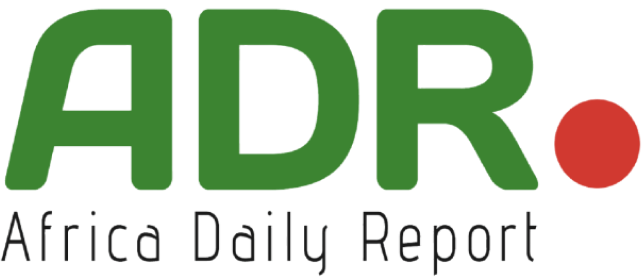
1. Political Context and Regional Repercussions
On November 7, 2024, Baltasar Ebang Engonga, the director of Equatorial Guinea’s National Financial Investigation Agency (ANIF), was removed from office by presidential decree after sextapes surfaced showing him in intimate encounters with multiple partners. Initially seen as a private scandal, the incident quickly took on a political and regional dimension, exposing power dynamics within the Economic and Monetary Community of Central Africa (Cemac).
As the son of Baltasar Engonga Edjo’o, Cemac’s president, and the nephew of Equatorial Guinea’s President Teodoro Obiang Nguema, the scandal has placed Cemac’s leadership under intense scrutiny. Some observers suggest Cemac’s silence on the incident could deepen longstanding criticisms about its lack of transparency and accountability. The scandal has also presented an opportunity for Vice President Teodoro Nguema Obiang Mangue – known as Teodorín – to tighten his grip on power by leveraging the disgrace of the Engonga family, seen as potential rivals in the succession race.
2. Official Reactions and Crisis Management: Social Media Control and Disciplinary Measures
Equatorial Guinea’s response to the scandal’s viral spread was swift yet controversial. Teodorín ordered a reduction in internet speed to curb the circulation of the videos, a move widely criticized as a suppression of online freedom. This attempt at containment, however, failed as the incident quickly garnered international attention, sparking a wave of comments and parodies on social media.
On the social media platform X (formerly Twitter), Teodorín announced strict disciplinary measures against any public officials engaging in inappropriate acts within government buildings. He also mandated surveillance cameras across administrative offices to prevent future incidents. This statement followed a moving television broadcast featuring a blurred-out woman claiming to be one of Engonga’s partners, who expressed shock and outrage, stating she was unaware the videos would be kept or publicly shared.
Teodorín’s actions seem to be aimed as much at quelling public outrage as at solidifying his own control over the political scene. His stringent stance projects an image of firm governance, yet some view it as a calculated move to maintain his succession bid.
3. Social Impact and Media Frenzy: A Tsunami of Memes and Parodies
The videos of Baltasar Ebang Engonga rapidly became the subject of widespread parodies and memes, with discussions rivaling global events such as the U.S. presidential election. The name “Baltasar” and the hashtag #BaltasarEbangEngonga became top trending topics across social platforms. Some internet users even humorously awarded him a symbolic “2024 Ballon d’Or” and created a fictional sexual performance enhancement brand called “Balthazariem.”
These viral reactions, amplified by African celebrities like Nigerian singer Davido and French rapper Kaaris, underscore how the scandal has captured attention beyond Equatorial Guinea. For the country’s citizens, particularly the youth, this incident has become a form of indirect protest against the perceived abuses of the political elite, turning the scandal into a powerful symbol of frustration with opaque governance.
4. Health and Legal Implications: A Public Health Crisis Looming?
Beyond the social and political fallout, this affair could escalate into a serious health and legal matter. Equatorial Guinea’s Attorney General Anatolio Nzang Nguema has stated that Engonga could face prosecution for public health endangerment if medical exams reveal he has a sexually transmitted infection. Such a charge, serious within Equatorial Guinea, reflects the intense pressure authorities are placing on Engonga and underscores the administration’s desire to handle this scandal rigorously.
In Equatorial Guinea, the public is watching the case with apprehension, concerned that unchecked behavior among high-ranking officials could have broader implications for public health and workplace ethics. This health angle amplifies the severity of the scandal, spotlighting issues of public morality intertwined with the responsibilities of senior officials.
5. Succession Stakes and Dynastic Rivalries: A Fragile Balance of Power
The scandal goes beyond moral misconduct or administrative discipline. It reveals political rivalries and could reshape the succession dynamics in Equatorial Guinea. Teodorín, widely seen as the legitimate successor to his father, could use this incident to bolster his position and undermine his potential rivals, including members of the influential Engonga family. This strategy could determine the country’s future power structure but also risks further polarizing the ruling elite.
Analysts agree this scandal may spark a political purge aimed at consolidating Teodorín’s power. These power struggles bear a resemblance to other African dynasties where family power is concentrated, often at the expense of transparency and democratic stability. This succession angle adds depth to the scandal, highlighting the intricate power plays within the highest ranks of Equatorial Guinea’s government.
6. Conclusion: A Crisis Exposing Central Africa’s Governance Challenges
The Baltasar Ebang Engonga affair highlights the governance challenges facing many African nations. For Cemac and Equatorial Guinea, the handling of this scandal will be a test of credibility. If mishandled, this scandal could undermine Cemac’s regional standing at a time when governance and leader integrity are under global scrutiny.
The affair could also influence Central Africa’s standing with international investors, particularly if it leads to a crisis of confidence in Cemac. “How Cemac and Equatorial Guinea respond to this crisis will be critical to their future international relations,” says an analyst based in Johannesburg. As this scandal continues to capture global attention, regional governments will need to demonstrate transparency and integrity to reassure economic partners.
In the end, this crisis may serve as a litmus test for the region, illustrating whether Central African states can handle internal scandals with accountability and effectiveness. Global observers are watching closely: Cemac’s decisions could shape regional stability for years to come.
© O Bulamba / Africa Daily Report




